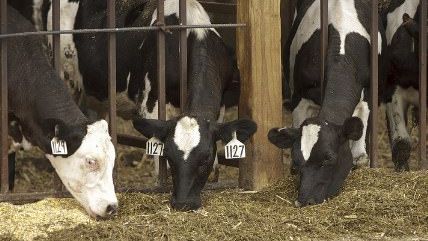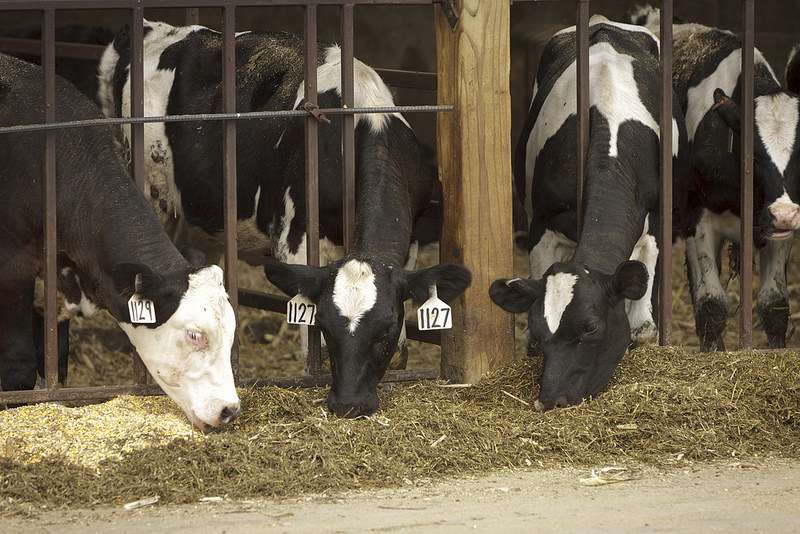Cruelty to Animals, Exposed
Law against filming abuse of livestock struck down.


If you like eating meat, information is not always your friend. In recent years, practices at large facilities that turn livestock into food have been exposed to public view, and the public often doesn't like what it sees.
The companies that confine pregnant sows in tiny stalls or scald chickens to death don't publicize these practices. Slaughterhouses where cattle are sometimes dismembered alive don't offer guided tours.
To see what goes on in the worst operations, most of us have to rely on activists who covertly record inside and put videos online. Organizations like the Humane Society of the United States, the American Society for the Prevention of Cruelty to Animals and Mercy for Animals have posted such footage.
When such grim revelations emerged, the owners of these operations had two choices: stop doing things that would shock consumers, or stop consumers from seeing them. Many suppliers did the former, sometimes under prodding from major grocery and restaurant chains. But some decided that concealment was preferable.
Their own efforts to keep out prying eyes, however, don't always suffice. So they have enlisted the power of government on their side. Seven states have passed "ag gag" laws aimed at preventing whistleblowers from exposing farm abuses.
Idaho, for example, made it a crime for anyone to do audio or video recording inside a facility without the owner's consent. This was necessary, the bill's sponsor explained, because "extremist groups implement vigilante tactics to deploy self-appointed investigators who masquerade as employees to infiltrate farms in the hope of discovering and recording what they believe to be animal abuse." Another likened these videos to "terrorism."
Vigilantes and terrorists, it should be noted, employ violent methods, including gratuitous brutality, to achieve ends they regard as important enough to override civilized norms. In that respect, they don't resemble the people filming the abuse of animals. They resemble the people committing those abuses.
The law, however, does not apply just to activist outsiders who rely on subterfuge. It covers faithful longtime employees who feel obligated to disclose conduct they find unconscionable or even illegal.
The ban does more than shelter the public from images affecting the treatment of mere livestock. It suppresses knowledge about practices that could harm humans. It denies the citizenry truthful information about important matters.
It also gets priorities backward. If you commit an excruciating act of cruelty against an innocent beast, you will serve no more than six months in an Idaho jail. But if you film that crime, you could spend a year behind bars. You also could be forced to pay restitution up to double the amount of any "economic loss" the company incurs once consumers learn how callous it is.
But as of last Monday, the law no longer applies to anyone, because a federal judge ruled it unconstitutional. In a decision that cast doubt on other state laws, U.S. District Judge B. Lynn Winmill said the Idaho ban violates the First Amendment because it "was designed to suppress speech critical of the agricultural industry."
The measure's supporters claimed to be protecting companies from dangerous impostors bent on destroying their businesses. Really? "It is already illegal to steal documents or to trespass on private property," said the judge. "In addition, laws against fraud and defamation already exist to protect against false statements made to injure or malign an agricultural production facility."
Devious infiltrators are hardly the only target. Winmill found that the law bans even filming that is "not disruptive of the workplace, and carried out by people who have a legal right to be in a particular location and to watch and listen to what is going on around them."
Chapman University constitutional law professor Ronald Rotunda says whistleblowers may not be forbidden to speak about such matters. All this law does is deprive the public of material that can substantiate what they claim.
Video footage can be exceptionally informative—whether it documents Planned Parenthood officials talking about ethically questionable abortion methods, police confronting citizens, or Mitt Romney deriding the "47 percent" or Barack Obama's pastor preaching, "No, not God bless America. God damn America!" It's a threat only to those with something to hide.
There are facilities where animals are raised or slaughtered in humane conditions that would satisfy the vast majority of Americans. There are others whose routines are enough to make you lose your lunch. Laws like the one in Idaho are a great boon to anyone who would rather not know the difference.
© Copyright 2015 by Creators Syndicate Inc.


Show Comments (51)